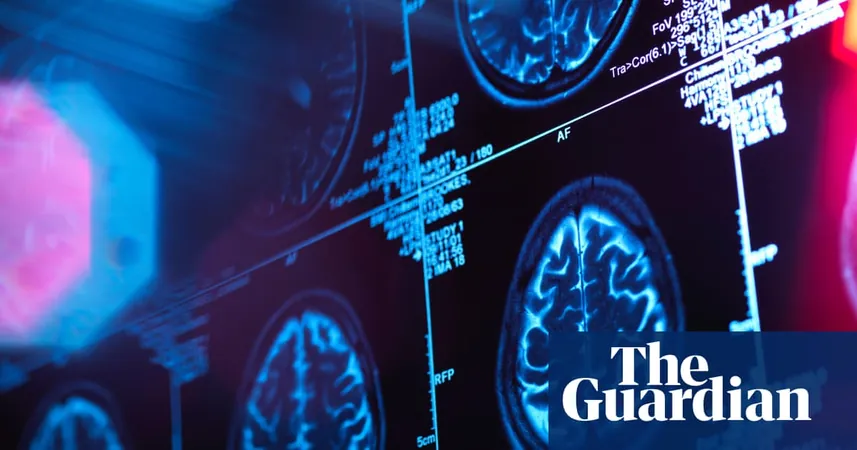
Could Antibiotics and Vaccines Hold the Key to Tackling Dementia? Experts Say Yes!
2025-01-21
Author: Jia
Overview of the Study
A groundbreaking study suggests that antibiotics, antivirals, and certain vaccines could play a significant role in combating dementia, as researchers explore the repurposing of existing medications that have already been approved for other health issues. The urgency for new treatments is amplified by projections that the number of people living with dementia worldwide is expected to skyrocket to 153 million by 2050, placing unprecedented strains on healthcare systems and societies.
Need for Immediate Action
While new pharmaceutical developments are emerging, they take time—a luxury that dementia patients may not have. According to Dr. Ben Underwood at the University of Cambridge, there is an immediate need to fast-track potential treatments. “Identifying drugs that already have a safety profile means we can jumpstart trials and potentially fast-track access to these medicines for patients,” he emphasizes.
Research Findings
In a collaborative effort between Cambridge and the University of Exeter, an extensive analysis was conducted looking at various studies correlating commonly prescribed medications with dementia risk. Researchers reviewed data from 14 studies that monitored the health of over 130 million individuals, including 1 million cases of dementia. They meticulously examined prescription records to identify drugs with possible links to altered dementia risk.
Surprising Discoveries
One of the most surprising discoveries revealed a connection between the use of antibiotics and antivirals and a lower likelihood of developing dementia. This finding lends credence to the hypothesis that certain dementias may be caused by viral or bacterial infections, which could be an avenue for further research.
Understanding Inflammation
Additionally, anti-inflammatory medications, such as ibuprofen, showed a correlation with reduced dementia risk. This aligns with the growing understanding that inflammation may play a crucial role in a variety of health conditions, including neurological disorders.
Cautions and Considerations
However, the results highlighted a patchwork of evidence surrounding various drug classes. For instance, some blood pressure medications, antidepressants, and diabetes drugs were linked to both increased and decreased risks for dementia, reflecting a need for further clarity and investigation.
Future Research Directions
Published in the journal *Alzheimer’s and Dementia: Translational Research and Clinical Interventions*, the study advocates for an exploration of the “biological plausibility” of these medications to be tested in larger trials. The research team emphasized that, “The association between antibiotics, antivirals, and vaccines and decreased dementia risk is particularly fascinating,” stressing the link between infectious agents and dementia.
Expert Opinions
Despite these promising findings, experts urge caution. Dr. Julia Dudley from Alzheimer’s Research UK asserts that it remains premature to conclude that these existing drugs can effectively reduce dementia risk until further studies validate the initial findings.
Dr. Richard Oakley from Alzheimer’s Society echoes this sentiment, stating, “If we can tap into the potential of repurposed, already-approved medications, it could save time and financial resources, bringing us closer to the fight against dementia.” The study sets a pivotal stage for understanding which drugs may hold the most promise for further research.
Conclusion
As researchers continue to delve into this promising area of study, the possibility of finding existing solutions to one of today's most pressing health challenges is a hope that could change countless lives. Stay tuned for more updates that could reveal the next big breakthrough in dementia treatment!


 Brasil (PT)
Brasil (PT)
 Canada (EN)
Canada (EN)
 Chile (ES)
Chile (ES)
 Česko (CS)
Česko (CS)
 대한민국 (KO)
대한민국 (KO)
 España (ES)
España (ES)
 France (FR)
France (FR)
 Hong Kong (EN)
Hong Kong (EN)
 Italia (IT)
Italia (IT)
 日本 (JA)
日本 (JA)
 Magyarország (HU)
Magyarország (HU)
 Norge (NO)
Norge (NO)
 Polska (PL)
Polska (PL)
 Schweiz (DE)
Schweiz (DE)
 Singapore (EN)
Singapore (EN)
 Sverige (SV)
Sverige (SV)
 Suomi (FI)
Suomi (FI)
 Türkiye (TR)
Türkiye (TR)
 الإمارات العربية المتحدة (AR)
الإمارات العربية المتحدة (AR)